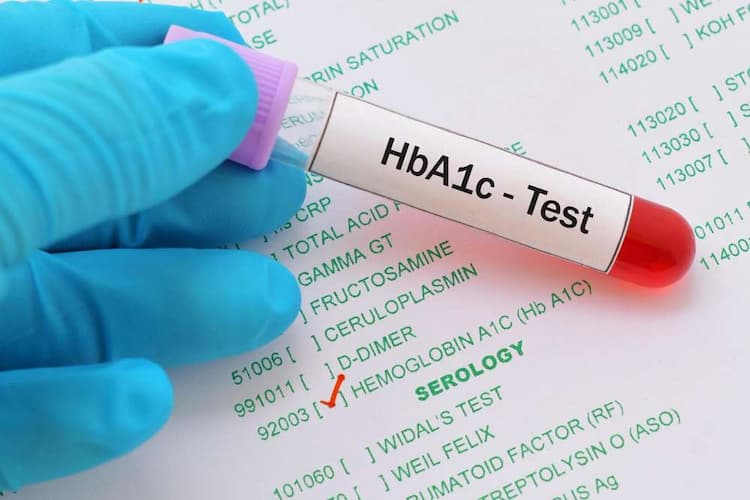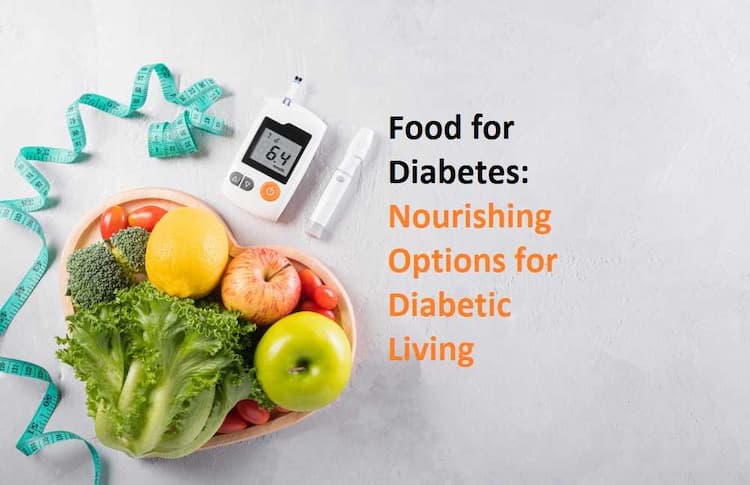Diabetes and Anger: How anger and diabetes are related

Medically Reviewed By
Dr. Ragiinii Sharma
Written By Prekshi Garg
on Nov 30, 2022
Last Edit Made By Prekshi Garg
on Mar 18, 2024

Can diabetes make you angry? All of us feel angry sometimes, but we never pause and ask if a disease or illness may be causing that. So the answer to the question- can high blood sugar cause anger, is yes.
Diabetes patients sometimes experience mood swings due to changes in blood sugar, level of stress, or some mental health issue.
Although you might believe that diabetes only affects your pancreas, it can also have a negative impact on your mental and emotional well-being. One side effect of fluctuating sugar levels is that too high or too low blood glucose levels can cause mood swings. Anxiety, stress, and depression might also manifest as other symptoms.
It's crucial to regularly assess your emotional health because managing diabetes on a daily basis can occasionally feel burdensome.
Poorly managed diabetes is characterised by fluctuating blood glucose levels, which can cause mood swings and unpredictable or even aggressive behaviour.
Understanding and adhering to your diabetes management plan is one method to manage your mood. Your blood sugar's highs and lows, which can lead to mood swings, will be regulated by doing this.
You may need to speak with a mental health expert if you think you are displaying signs of anxiety, despair, or burnout. Your complete health is just as crucial to managing your mental health as it is to follow your diabetes treatment plan.
Let's look at the connection between diabetes and anger, what triggers them and what you can do to stop yourself from going down that path of rage and fury.
Diabetes And Anger - Can High Blood Sugar Cause Anger
Most diabetics manage their condition without drastically altering their behaviour. The fact remains that being diagnosed with diabetes comes with a whole new level of responsibility and extra stressors that individuals who aren't living with the disease can never completely understand. Living with diabetes can occasionally be very draining emotionally. How a person responds to this additional pressure could make the difference between giving in and succeeding.
Aggressive behaviour and diabetic rage are genuine. Diabetes has a negative consequence known as diabetic rage, which is terrifying and dangerous. For many patients with diabetes, irritability and anger manifest quite often.
Because it may involve actions you're not consciously aware of, "diabetes rage" can be harmful. Anger, anxiety, or despair might result from blood sugar fluctuations, spikes, or drops. You can believe that you have no control over your feelings.
More significantly, extremes of either hypoglycemia or hyperglycemia can cause mental disorientation, hallucinations, or loss of self-control.
These circumstances should be treated as a medical emergency.
Causes Of High Blood Sugar And Anger
People with diabetes may develop rage and aggression for one of two main reasons. The first is a response to the difficulties of having diabetes. Out-of-control blood sugar levels are the second cause and unquestionably the most preventable. One is, therefore, psychological, while the other is physiological.
Psychological Causes Of High Blood Sugar Anger
Diabetes patients have many daily treatment and lifestyle demands in addition to regular daily chores. It's normal to experience annoyance, resentment, and a sense of "why me."
Even though the disease is no walk in the park, living with diabetes is undoubtedly easier than it has ever been, thanks to testing and treatment advancements like continuous glucose monitoring (CGM), glucose meters, injection pens, test strips, and insulin pumps. Still, Psychologically, perspective plays a significant role in diabetic rage.
Diabetes is a chronic condition with no known or effective treatment. Thus it must be managed continuously. Maintaining appropriate cholesterol levels, blood pressure, blood sugar, and stress are the objectives. People may get "mad at the disease" and the procedures necessary to treat it due to this struggle. It might be necessary to make significant changes to your current way of life, which would take a lot of effort, concentration, money, and time. Due to the possible issues, others feel threatened, and anger is a coping technique. A person is more prone to acting aggressively the longer they are stuck in their anger and resentment over having diabetes.
Stress and one's mindset have a role in diabetic rage and aggressive behaviour. Aggressive behaviour might result from bitterness and anger. These "angry" outbursts typically don't go beyond verbal outbursts and tantrums. If left unchecked, diabetes-related rage can become violent in rare instances.
Living with diabetes comes with constant demands that sometimes be too much to handle. They may result in disappointment and failure, which may trigger episodes of diabetes-related depression.
Simply put, the psychological cost of having diabetes won't go away as long as you have the condition. Therefore, it is crucial to seek assistance if you or someone you love is acting aggressively due to the pressures of diabetes. Get advice from your diabetes doctor, join several online support groups, or seek qualified assistance from a diabetes counsellor.
Physiological Reasons For High Blood Sugar Anger
The increased stresses of having diabetes is one possible reason for diabetes-related rage, but they are not the only ones, and they don't work alone. Mindset and stress play a role in diabetic rage and aggressive conduct. A variety of biological functions causes the aggressive nature of diabetes.
Glucose is the primary factor causing issues with brain function associated with diabetes. Yes, the usual suspect is to blame here: poorly controlled blood sugar.
Like most diabetes-related issues, a person's ability to control blood glucose levels frequently determines how serious a problem is. If you have diabetes, you are well aware of how important it is to follow your doctor's advice on blood sugar testing and treatment, especially if additional diabetes drugs or insulin injections are involved.
You might be surprised to learn that blood glucose has a significant impact on how the brain functions, including issues with self-control and how the body responds to "fight or flight" situations. These low, as well as high blood sugar and anger are related.
Brain function is impaired by hyperglycemia (blood sugar levels over 140 mg/dL) and hypoglycemia (blood sugar levels below 70 mg/dL). Even worse, it makes the issue worse when blood sugar levels are frequently fluctuating between highs and lows, which can occur when diabetes is not effectively managed.
Hypoglycemia anger and subsequent aggressive behaviour are one effect that could happen. When a person's blood sugar levels are out of control, their emotions can easily take the same course.
Mood swings can occur suddenly and seemingly without rhyme or reason. Feelings of aggression and even rage can be a direct outcome of bad blood sugar management, even though they aren't necessarily motivated by anger (depression and anxiety are other emotional reactions linked to improper blood glucose control). The outburst is full of emotions. But biology alone accounts for its underlying reason.
Signs Of Hypoglycemia Anger
Being angry is normal. When rage grows stronger and is directed outside of oneself, that is what creates problems. The signs of diabetic rage are severe and sometimes terrifying. While everyone reacts differently when they're angry, keep an eye out for these common indicators of diabetes rage:
- Unfound or Delusional reasons that people are trying to hurt you, making you lose your temper and lash out
- screaming
- Intense agitation
- Pushing others
- Temper tantrums
- Grabbing people
- Hitting or slapping
- Belittling others, showing them down
- Threatening and intimidation
- Destructive behaviour
- Impulsive decisions or reactions
Violence towards people and property can result from diabetic rage. Even though diabetes is a lifelong condition, there are strategies to manage it and keep it from returning.
How To Handle Diabetes Irritability And Anger
How To Manage Diabetes Irritability And Anger and Understanding diabetic rage and aggressive behaviour will help you or a loved one discover what's going on and how to take action to curb this in future.
Everybody and every circumstance are unique. Additionally, it relies on whether it is the underlying psychological or physiological factors that are causing the aggressive behaviour. Here are a few things to think about that could help reduce current episodes and stop new ones in the future.
- Keep a check on those blood sugar levels.
Aggression linked to diabetes is probably correlated with poorly managed blood sugar. Test it and monitor it, frequently. Getting your blood sugar under control would probably calm those hostile and angry feelings if you're having highs, lows, or both of sugar levels.
- Consult your physician.
In order to create a successful testing and treatment plan, your doctor is there to assist you. Speak with your doctor if you're feeling angry. It might be required to change your diet or lifestyle to manage your blood sugar better.
- Exercise is good for you.
We are all aware of the benefits of exercise for managing blood sugar levels and weight. In addition, it's a fantastic method to release frustrations, quiet the mind, and cleanse the head. Physical activity, whether it be walking, yoga, or any of your preferred sports, can be quite beneficial for your physical and mental health.
- Relaxation techniques
Deep breathing exercises, meditation, Thai Chi, and yoga can all assist in unwinding the body and mind. However, suppose none of them appeal to you. In that case, simple pleasures like music, drawing, or even playing video games can be wonderful outlets to channel the feelings of rage and hostility productively.
- Diabetes support group.
You can choose from a variety of them online or ask your doctor for a suggestion of a group in your region. In either case, talking things out with others facing many of the same difficulties can be quite beneficial.
- Seek counseling from a therapist.
A skilled therapist, particularly one familiar with the difficulties of living with diabetes and anger issues, can sometimes be helpful. Your diabetes doctor can undoubtedly provide a recommendation. Many good hospitals now have in-house counsellors as well to help the patient come to terms with their diagnoses and to manage their life with the disease.
FAQs
- As a diabetic, how can I know when I am getting angry?
These emotions might get so strong after you're upset that you stew for hours. Recognize the warning signs that your anger is intensifying. You might begin speaking more quickly and loudly, sweating, turning red, and feeling tense internally. Your eyes may start to tear up. Your heart can start racing, your mouth and lips might get dry, and you might lose focus and attention. Your system is overflowing with hormones, which cause your blood pressure and blood sugar to rise. If this occurs regularly, you can even start to experience sleeplessness. You must discover the sources of your rage, how to manage it, and appropriate responses.
- How can I educate myself & others about my diabetes and anger issues?
Keep an anger journal and check it sometimes to understand your feelings better. Pay attention to what enrages you and work to find a solution. Is having diabetes making you want to avoid people? Some patients experience anger because of their diabetes-related self-consciousness. Try to educate your friends, family, and coworkers on diabetes so they will be aware of your dietary restrictions and how they can assist in an emergency. Get diabetes under control by collaborating with a medical team. Participate in support groups or self-help groups to learn more about diabetes. Make an appointment with a counsellor if your anger sensations don't go away.
Conclusion
Diabetes by itself does not cause violent behaviour. However, if you're struggling to control your illness and keep your blood sugar within the desired range, it may result in physiological issues that make you feel irate and hostile. Some people experience sentiments of rage and animosity due solely to the challenges of managing their diabetes on a daily basis. In either case, these emotions might sometimes manifest themselves in inappropriate behaviour. The good news is that there are solutions to the issue; nevertheless, the best method to come up with your own is to have an honest conversation with your diabetic doctor.
Leave a comment
1 Comments
Luz Ruiz
Sep 2, 2023 at 11:44 AM.
How long can the emergency room have you restrain for with locks on each limb ...they had me for 8 hours I think tht was much due to my dka throwing up handcuff and they sedated me as we enter the emergency room they left me there shackled 8 hours
Myhealth Team
Sep 7, 2023 at 11:51 AM.
The duration of restraints in an emergency room should be as short as necessary for safety, but specific time limits can vary. If you have concerns, consult a legal professional or patient advocate.



